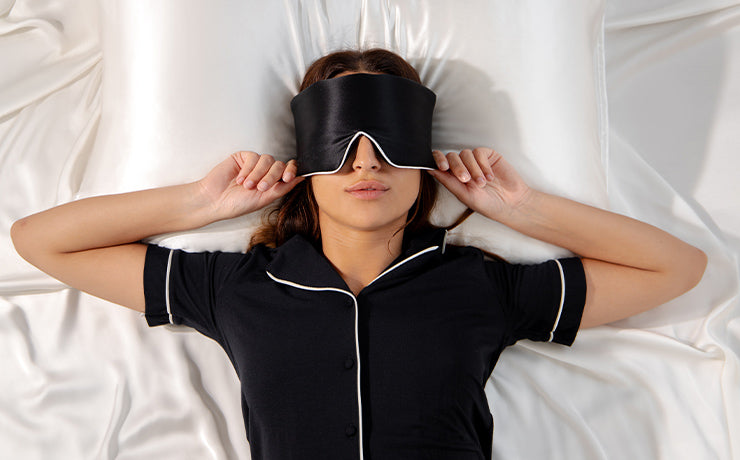Why it's hard to fall asleep in new places: psychological insights
Have you ever tried to sleep in a new place, like a hotel or a friend's house, only to be tossing and turning all night? Even though you're exhausted from traveling or from a busy day, sleep seems to elude you. It's frustrating, isn't it? Well, it turns out there's a reason for that, and it has a lot to do with how our brain works. Let's explore why it's so hard to get quality sleep when you're in unfamiliar surroundings.
1. Brain on high alert
The first thing to understand is that when we sleep in a new place, our brains are pretty much on the edge. It's a survival thing. Think of it this way: at home, your brain is comfortable. It knows every little creak in the floor, every sound from the fridge, and where the doors are. It knows everything is safe. But in a new place, those cues aren't there for your brain. So, instead of shutting down to deep sleep, it stays a bit more alert, scanning for any possible dangers. This response can be more intense for those with sleep disorders, such as post-traumatic stress disorder (PTSD), which can make you feel unsafe or hyper-alert in new environments.
2. Disrupted sleep routine
Your usual routine also gets disrupted when you're in a new place, which is another reason you're getting poor sleep. Humans are creatures of habit. Small rituals as simple as drinking a cup of milk before bed or the feel of your own pillow tell your brain that it's time to wind down. But in a new environment, those signals aren't there. If the bed isn't as comfortable or the room is too warm (or too cold), your brain will stay alert, no matter how tired you feel.

3. The stress of traveling or new experiences
Let's face it—traveling can be exciting, but it's also stressful. Even if you're excited about a new adventure, being in unfamiliar places involves a lot of mental and emotional energy. From figuring out the best route to the airport to accounting for jet lag, it's a lot for your brain to handle. In moments of stress or excitement, our bodies release stress hormones like cortisol and adrenaline, which keep us awake at night. Even if your body is physically tired, your mind might still be racing from everything you've experienced during the day. If you already struggle with mental health disorders like anxiety or depression, this mental load can feel even heavier, making it trickier to get a good night's sleep.
4. Lack of comforting environmental cues
At home, our brain has learned that certain things mean it's time to relax. The sound of the fridge humming, the familiar smells of your home, or even your cat purring all serve as comforting cues for bedtime. But in a new place, it's all different. You may hear traffic outside, or perhaps the bed is not that comfy. These changes can prevent your brain from fully relaxing and letting go. It's not just the physical environment either. When you're staying with others, there's often the sense that someone else is nearby, even if they're in a different room, ultimately keeping you alert.
5. Anxiety and homesickness
Sometimes, it's not only about the environment; it's also about how we feel emotionally when we're out of our homes. For some, sleeping in a new space can bring up feelings of homesickness or anxiety. The absence of familiar comforts—the smell of your own sheets, the sound of your own neighborhood—can leave you feeling a little disconnected. Even if you're sleeping on a comfy bed in a gorgeous place, you may sense a void. This emotional discomfort can make it harder to settle in and get some restful sleep.

6. Thrown-off circadian rhythm
Our bodies have an internal clock called the circadian rhythm that helps regulate when we feel sleepy. It's why you usually get tired at the same time every night. However, when you travel to a new place, especially to a different time zone, your body's clock can get out of sync. This disruption to your circadian rhythm can leave you wide awake when you should be sleepy, or vice versa, causing you trouble falling asleep. For people who struggle with sleep apnea or other sleep disorders, this misalignment can make sleep even harder to achieve, worsening their sleep quality.
Getting better sleep in new places
When you're in a new environment, sleep disturbances like restless legs syndrome, poor sleep habits, or trouble sleeping can mess with your sleep patterns. These sleep disruptions can affect both your mental and physical health. But by taking care of your sleep hygiene and creating a calming routine, you can improve your sleep quality.
One easy way to sleep in new places is to use the Drowsy Silk Sleep Mask. When you're in an unfamiliar place, light can sneak in and interfere with your sleep. The Drowsy sleep mask keeps things nice and dark, so you can fall asleep faster and stay asleep longer. Plus, the soft silk material feels super gentle on your skin, making it a comfy way to unwind after a long day.
Choose your favorite style and color from our wide selection and create a peaceful sleep environment, no matter where you are!






